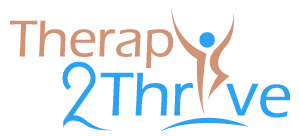Boundaries-Honoring Yourself
Therapy2Thrive® Pleasanton
925-998-3392
Boundaries-Honoring Yourself
“The right person will just know me.” How often have you heard this statement? While it may have some bits of truth to it, the reality is that in order to have this knowing, “the right person” will work hard in the relationship in concert with you to understand you and have you understand them. All relationships are alive—they are in constant movement and must be fed, nurtured, and cared for in order to grow. When people can communicate openly and honestly about what they are thinking, feeling and need, this gives others the opportunity to know how to treat them and connect in deeper, more meaningful ways.
These needs that are communicated in healthy relationships are boundaries—personal guidelines for what we are willing to put into a relationship and how we wish to be treated. Whether it is boundaries with friends, family, partners, bosses, neighbors—whomever we interact with on a day to day basis, these limits serve to set up appropriate expectations, establish mutual trust and model healthy self-care. Without these limits in our relationships with others, we risk those relationships becoming toxic and being taken advantage of or feeling hurt and misunderstood. Others need to know how to treat you and act around you; otherwise you will end up feeling disrespected.
Healthy boundaries fuel healthy relationships and unhealthy boundaries tend to perpetuate as well. And it’s true, boundaries require work. Things that are important rarely come easy. It requires internal reflection about who we are, what we need and what we won’t allow. Then it requires the direct, outward expression of those needs. In basic steps, setting boundaries with others looks like:

1) Reflection
It’s hard to ask for your needs to be met if you don’t know what they are. So start by asking yourself some questions about what you want in your relationships. Do I feel comfortable, safe and respected in this relationship? Do I feel pressure to do things I don’t really want to do? Do I feel heard and valued? Am I happy and fulfilled?

2) Communication
Using “I” statements and focusing the conversation around your feelings and what you need rather than focusing on what the other person is doing wrong is an effective way to approach boundary conversations. “I felt hurt and misunderstood yesterday” will be received differently than “You hurt my feelings yesterday.” Being assertive is not being demanding, it is being open and honest about what you need and how you will protect yourself. “I feel hurt when I don’t feel heard. It is important to me that we set aside the time to be with and listen to each other.” Being able to understand and assert your boundaries will serve you kindly in many ways. You are protecting and conserving your emotional energy which will positively impact your mental health. It will also strengthen your self-esteem/confidence as well as create pathways to reconnect with your deeper self.
3) Following through
Once your boundaries are set, the responsibility to yourself is to maintain them. This means repeating boundaries as needed and following through with consequences when or if they are violated. Healthy boundaries are fluid and shift over time as we learn and grow. Sometimes we may be okay with something at the beginning of a relationship, but then over time, we realize that it makes us uncomfortable and we no longer are okay with it. It is always okay to adjust boundaries and change our minds at any time. So if they change, you communicate those adjustments along the way.
Knowing and setting our personal boundaries in relationships is a form of self-love. We are all worthy of asking for and receiving what we need. When we can connect with ourselves and understand our own needs, we can be with others in ways that are more stable, fulfilling and authentic.
A loving truth to honor yourself highly is best conveyed in this quote by Prentis Hemphill, “Boundaries are the distance at which I can love you and me simultaneously.”
Therapy2Thrive™ brings Hope for Healing
Our counselors at Therapy2Thrive™ provide compassionate, practical, and evidenced based practices to assist you in the therapeutic process to meet your goals and find hope to heal the challenges you are facing.
Contact our family counselor in Pleasanton for private consultation.
